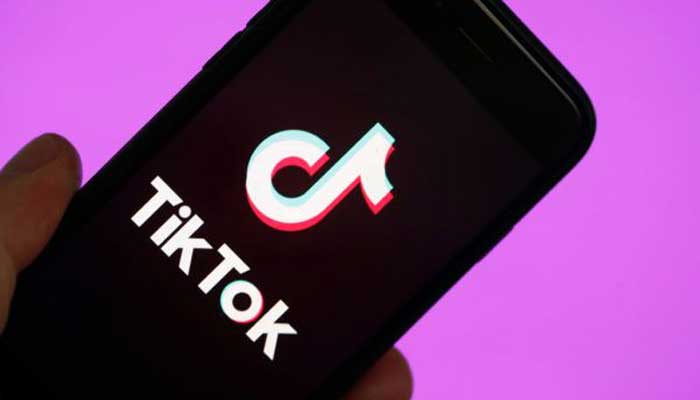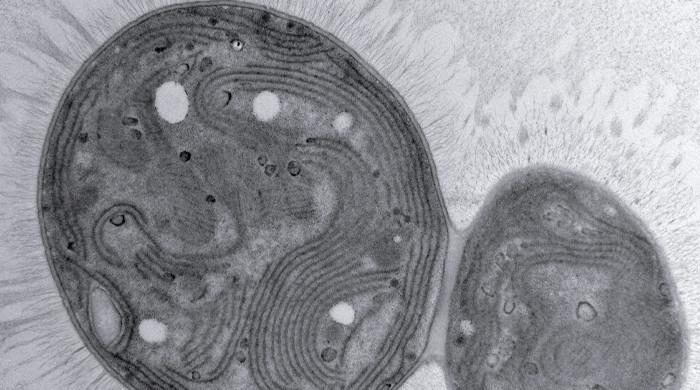Negotiators search for TikTok deal structure as Trump's deadline looms
Some analysts say it appeared difficult to craft a deal that allays concerns in both countries on security, algorithms used by TikTok
September 18, 2020

WASHINGTON: Amid a deadline on their heads set by President Donald Trump, negotiators struggled to formulate a new ownership plan for TikTok.
A deal appeared to be taking shape this week that would allow Silicon Valley-based Oracle to be the US technology partner for TikTok to allay Washington's concerns that the platform could be used for Chinese espionage.
But details of the deal remained unclear. Some reports said Oracle would be a minority stakeholder in TikTok, with the Chinese parent firm ByteDance keeping a majority.
A US government national security panel was reviewing the Oracle bid while Republican lawmakers warned against accepting a deal that keeps the Chinese firm in control.
"We'll make a decision soon," Trump said on Thursday, a day after saying he was undecided and still considering the national security implications of any new structure for the wildly popular app, which has an estimated 100 million users in the United States and as many as one billion worldwide.
Some analysts said it appeared difficult to craft a deal that allays concerns in both countries on security and the algorithms and other key technologies used by TikTok.
"It seems like a zero-sum game where either China or the United States gets the intellectual property and security benefits, and there's no way for both parties to share that," said Betsy Cooper, director of the Aspen Institute's Tech Policy Hub and a former Homeland Security official.
Cooper said the reported deal with Oracle hosting data as a minority shareholder "doesn't sound like it resolves the security concerns" raised by Trump and other US officials.
James Lewis, who heads technology policy at the Center for Strategic and International Studies, said Oracle could still win approval for its deal, but may need to make changes.
"If they can show a good package of security measures it will help," Lewis said. "It's an easier sell for Oracle if ByteDance becomes a minority owner."
Six Republican senators said in a letter to Trump this week that "any deal between an American company and ByteDance must ensure that TikTok's US operations, data, and algorithms are entirely outside the control of ByteDance or any Chinese-state directed actors, including any entity that can be compelled by Chinese law to turn over or access US consumer data."
Trump has threatened to ban TikTok in the United States if no deal is reached by September 20, in the latest battle between the two countries over technology.
Possible Beijing veto
Richard Windsor, an independent technology analyst who writes the Radio Free Mobile blog, said that any TikTok deal that addresses the US security issues runs the risk of facing a veto by Beijing.
"The fact that Oracle will have access to TikTok's algorithms and source code greatly increases the chances of the deal being approved by the US administration, but it also greatly increases the chances of it being blocked by China," Windsor said.
While parties struggle to reach a deal, Chinese President Xi Jinping said Thursday on a tour of a factory that "innovation is the most important quality of business management, and it is also what we must overcome obstacles to do in the future."
"Key core technology must be firmly kept in our own hands," he added, according to China's official Xinhua news agency.
But Windsor also noted that "ByteDance needs this situation to be resolved quickly" since "there are no shortages of innovative apps waiting in the wings to fill any gaps left by TikTok should ByteDance fail to prevent a ban."
The TikTok saga has seen several twists, with Microsoft seen initially as the suitor before its bid was rejected.
Walmart, which was working with Microsoft, said in a statement Sunday it "continues to have an interest in a TikTok investment and continues discussions with ByteDance leadership and other interested parties."
Chinese authorities have said they would not allow ByteDance to sell the algorithms used by TikTok, which are believed to hold much of the value for the popular social platform.
Trump has demanded a significant portion of the sale go to the US Treasury, but said Wednesday he had been advised that was not possible.











